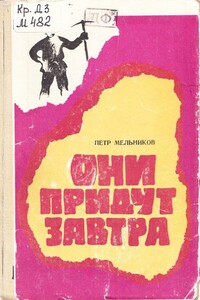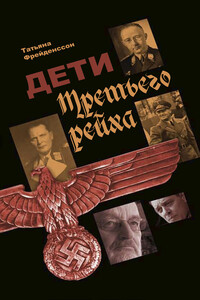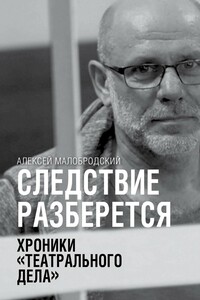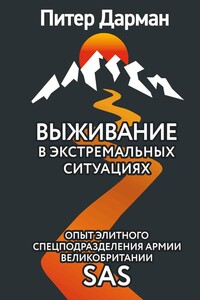The Boy Scouts In Russia - [8]
"I only knew there was danger of war the night it began," said Fred. "I suppose it is on account of Servia, though?"
"Yes. That started it. They are Slavs, like ourselves. It is as it was when we fought Turkey nearly forty years ago. The Turks were murdering Slavs in the Balkans, and all our people called on the Czar to fight. This time we could not let Austria bully a nation that is almost like a little brother to Russia."
"I can understand that," said Fred. "I suppose there's enough of the Slav in me, from my mother, to make me feel like that, too."
"Even after the way Mikail treated you? Tell me about that. Why did he behave so, though I suppose you may not know?"
"I don't, really. My father is dead, you know. I and my mother are alone. She has always loved Russia, though she calls herself an American, and is one, and has always made me understand that I am an American, before all. But she has taught me to love Russia, too. And she has always told me that there were estates in Russia that belonged to her, and would belong to me. She and my father were angry and hurt because of the way her family treated them, but she said that some time she wanted me to take possession of the estate, and to live for a little time each year in Russia. She said that the peasants on the place would be better off if I did that."
"Yes," Boris nodded. "That is what those who criticise us do not always remember. Russian nobles do look after their peasants. The peasants in Russia have not had the advantages of the poor in other countries. They are like children still. My father is a father to all the people on our estate. When they are sick, he sees that they are cared for. If there are bad crops, he gives them food and money. We must all do such things."
"That's what she told me. Well, she wrote letters and she could get no answers. So she decided to come herself. But she was taken ill. Not seriously, but ill enough so that the doctor did not want her to travel. And that was why I came. I went to my uncle, because he was in charge of her affairs. And then, though he was kind enough when I first saw him, and promised to help me, I was arrested. All my papers were taken away, and all my money. And he brought me to Virballen, after I had been kept in a sort of prison for three or four weeks. There I was taken off the train for Berlin and put across the border, without any money or passports. The German lieutenant himself was going to send me to Berlin, but then the news came that war had been declared, and he advised me to walk. I was held up at the first village I came to, and I got as far as this. You saw what happened here in this little village."
"That is very, very strange," said Boris, vastly puzzled. "Do you know what charge was made against you?"
"No! Some tommyrot about a conspiracy against the Czar. But just what it was I was never told. I am forbidden to re-enter Russia."
"I don't understand at all," said Boris. "Mikail can't want to keep your mother's property for himself. He is a very rich man-by far the richest of the family, though none of the Suvaroffs are poor. And I know about your mother's lands, because they are next to our own."
"The money that comes from them has always been sent to her," said Fred. "That was what I was thinking of, too. There was no trouble, you see, until it seemed that we might want to live on the place from time to time."
"Yes. My father has had something to do with the arrangements. Your mother is well off, even without her own property, isn't she?"
"Yes. My father was not a millionaire, but he always had plenty," answered Fred, very frankly.
"Mikail did hate the idea of her marriage," said Boris, reflectively. "I could understand this better if I thought that he was trying to keep her inheritance from her to show his dislike. But it cannot be that. There is something very mysterious. I wish my father were here! I think perhaps he would understand."
"Where is he, Boris?"
"With the army by this time! He did not believe there would be war, to the very last. That is the only reason I am still here. But he himself was called back as soon as things began to look serious. I stayed here with my tutor but he is gone now. He is a German, and has been called out. It is fortunate that my father had gone, because the Germans would have held him, of course, if he had been here. They have come here three or four times to look for him, but now I think they have decided that we have told the truth, and that he is not here."
"How did you happen to come to my aid in such a fashion? I was beginning to think that I was in serious danger down there."
"You were, Fred! They thought you were an English spy. And they hate the English worse than they do us, I think. They have thought that the English should be on their side. When they found it could not be so, they thought that at least England would be afraid to fight."
"I see that. But you-what brought you out?"
"I know those people. And when I saw that they were attacking someone, it seemed to me that I couldn't just stand by and look on. It was sure to be someone on my own side that they were treating so-the cowards! But a mob is always cowardly. And, of course, I knew that I could manage easily with the automobile. They were sure to scatter when they saw it coming, because they are afraid of motors, anyway."

В книге рассказывается история главного героя, который сталкивается с различными проблемами и препятствиями на протяжении всего своего путешествия. По пути он встречает множество второстепенных персонажей, которые играют важные роли в истории. Благодаря опыту главного героя книга исследует такие темы, как любовь, потеря, надежда и стойкость. По мере того, как главный герой преодолевает свои трудности, он усваивает ценные уроки жизни и растет как личность.

Это суровое документальное повествование не предназначено для легкого чтения. В нем любознательный читатель найдет для себя немало поучительного, узнает о том, как бывшие красногвардейцы, партизаны и чекисты, во главе с коммунистом В. П. Бертиным, при активном содействии обкома партии и правительства молодой Якутской республики, еще при жизни В. И. Ленина, открывали и осваивали золотоносные месторождения на Алдане, и как самые закаленные и упорные из них в составе первой Верхнеколымской геологоразведочной экспедиции высадились на берег Охотского моря и открыли золотую Колыму. Читатель узнает также о том, как старатели и якуты-проводники помогли Ю. А. Билибину, С. Д. Раковскому и П. М. Шумилову найти в жизни более верную дорогу, чем у их отцов, и стать патриотами своей социалистической Родины, лауреатами Государственной премии. Эта книга — о повседневном будничном героизме советских геологов и золотоискателей.

Герои этой книги – потомки нацистских преступников. За три года журналист Татьяна Фрейденссон исколесила почти полмира – Германия, Швейцария, Дания, США, Южная Америка. Их надо было не только найти, их надо было уговорить рассказать о своих печально известных предках, собственной жизни и тяжком грузе наследия – грузе, с которым, многие из них не могут примириться и по сей день. В этой книге – не просто удивительные откровения родственников Геринга, Гиммлера, Шпеера, Хёсса, Роммеля и других – в домашних интерьерах и без цензуры.

В книге рассказывается история главного героя, который сталкивается с различными проблемами и препятствиями на протяжении всего своего путешествия. По пути он встречает множество второстепенных персонажей, которые играют важные роли в истории. Благодаря опыту главного героя книга исследует такие темы, как любовь, потеря, надежда и стойкость. По мере того, как главный герой преодолевает свои трудности, он усваивает ценные уроки жизни и растет как личность.

Автор, один из фигурантов громкого «театрального дела» режиссёра Кирилла Серебренникова, рассказывает историю своего «сопротивления». Книга эта – одновременно и триллер, и крутой детектив, и готический роман ужасов, это и жесткий памфлет, и автобиография. Но как бы ни определить её жанр, это повествование о стойкости, верности убеждениям и своему делу.

«Чтобы выжить, вам необходимо овладеть искусством выживания, особенно психологическим его аспектом, поскольку от этого в конечном счете и зависит, останетесь вы в живых или погибнете», — говорит Питер Дарман. В его книге «Выживание в экстремальных ситуациях» собран опыт элитных подразделений, таких как SAS и «Морские котики» США. В основе выживания лежат самые простые вещи: правильное использование одежды, инструментов, подсобных предметов и, главное, ваша психологическая готовность. Автор рассказывает о том, как выжить в различных нештатных ситуациях: в пустыне, тайге, джунглях, на Крайнем Севере.